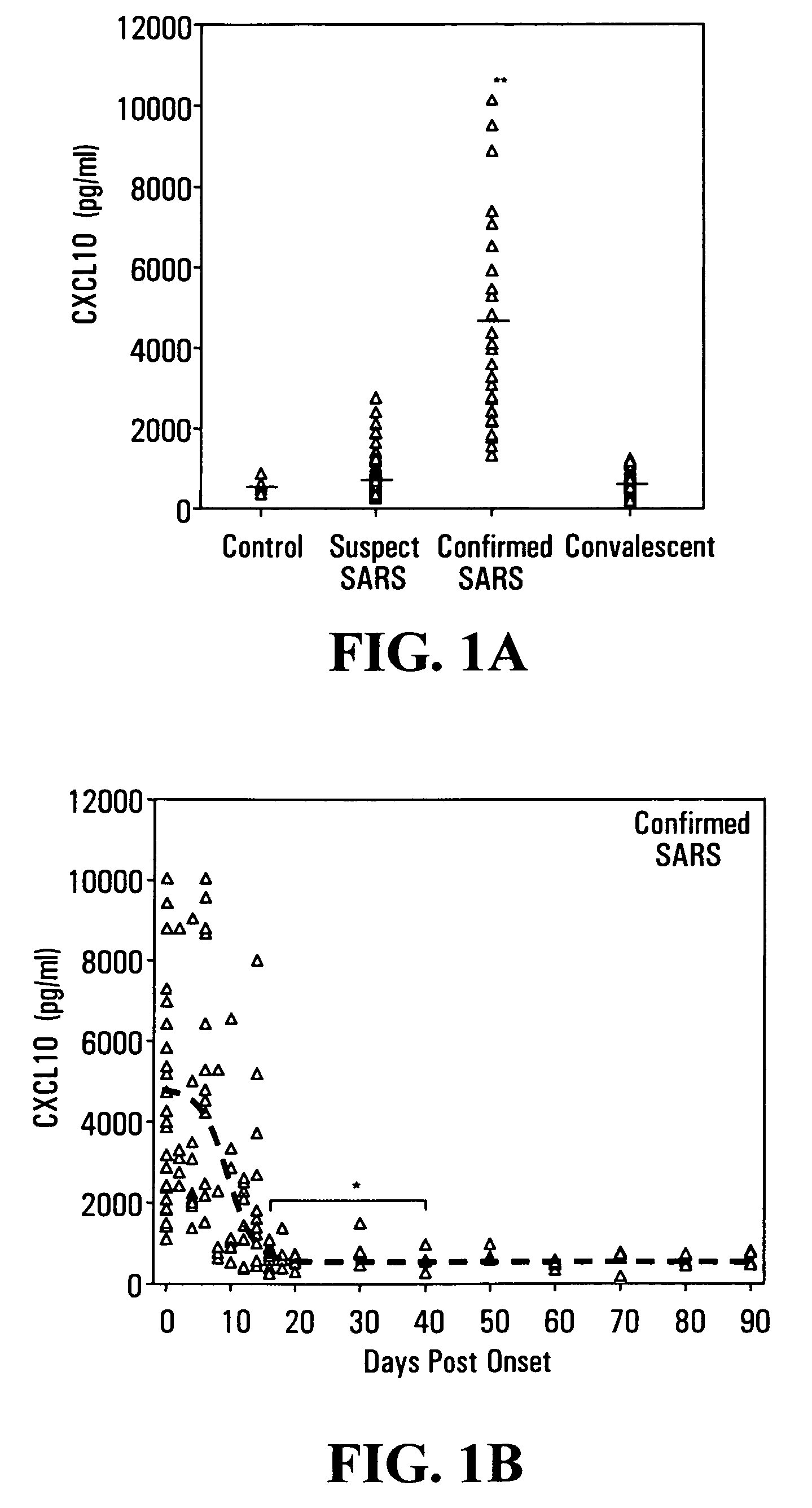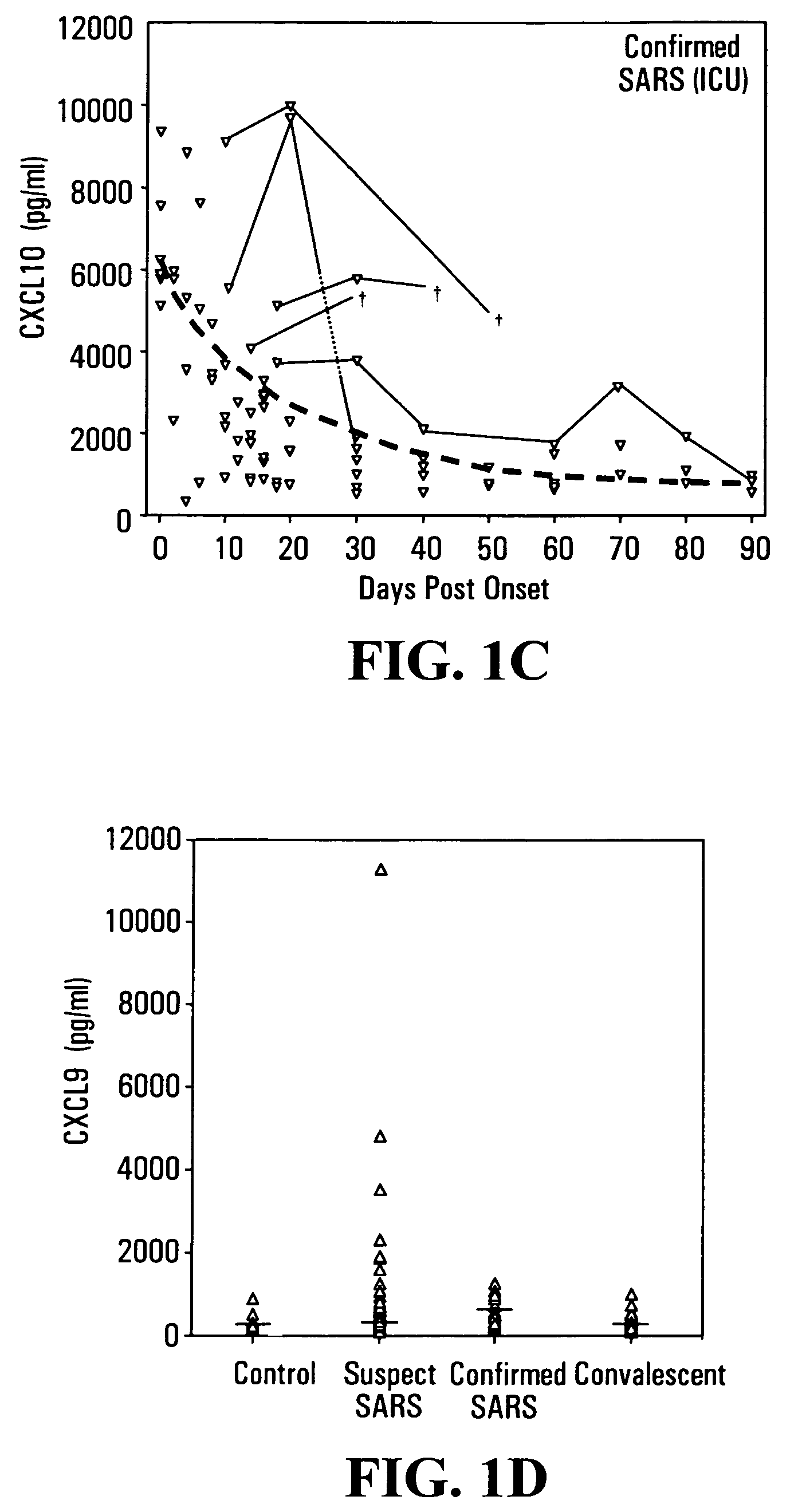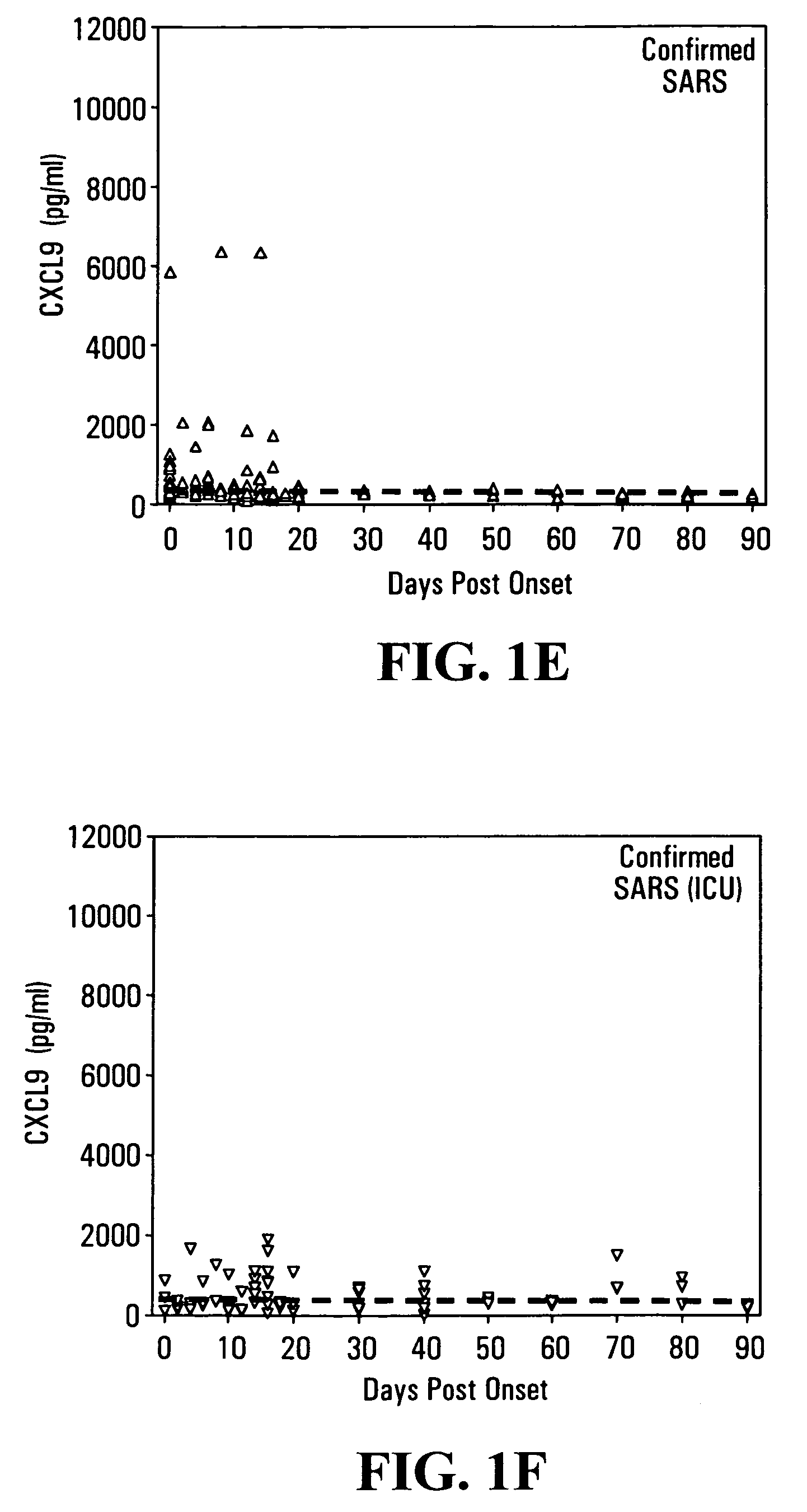CXCL10-based diagnosis and treatment of respiratory illnesses
a technology of respiratory illness and diagnosis, applied in the field of cxcl10-based diagnosis and treatment of patients suffering from respiratory illnesses, can solve the problem of unknown whether or not human sars cov will cause another global outbreak
- Summary
- Abstract
- Description
- Claims
- Application Information
AI Technical Summary
Benefits of technology
Problems solved by technology
Method used
Image
Examples
examples
Materials and Methods
Patients
[0154]Study subjects were enrolled without bias to age, sex or previous medical history Informed consent was obtained from all subjects under the approval of the Research Ethics Boards of the University Health Network and participating hospitals. Clinical details were provided to us following completion of our analysis and can be found in other studies describing this overlapping patient cohort (3,5,12,13). Our cohort consisted of 63 confirmed SARS patients (median age 40 years, 23 males and 40 females) as defined by Health Canada case definitions (Health Canada: Severe acute respiratory syndrome (SARS), http: / / www.sars.gc.ca). These patients were identified with early clinical presentation of SARS symptoms, radiographic evidence consistent with SARS and laboratory evidence of SARS-associated CoV infection (positive PCR, seroconversion and / or virus isolation results). SARS patients were treated similarly with steroids (approx. 20 to 50 mg / d hydrocortison...
PUM
| Property | Measurement | Unit |
|---|---|---|
| real time PCR | aaaaa | aaaaa |
| thermal melting point | aaaaa | aaaaa |
| concentrations | aaaaa | aaaaa |
Abstract
Description
Claims
Application Information
 Login to View More
Login to View More - R&D
- Intellectual Property
- Life Sciences
- Materials
- Tech Scout
- Unparalleled Data Quality
- Higher Quality Content
- 60% Fewer Hallucinations
Browse by: Latest US Patents, China's latest patents, Technical Efficacy Thesaurus, Application Domain, Technology Topic, Popular Technical Reports.
© 2025 PatSnap. All rights reserved.Legal|Privacy policy|Modern Slavery Act Transparency Statement|Sitemap|About US| Contact US: help@patsnap.com



